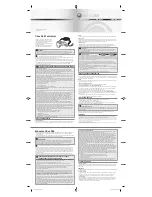
~INSTALLATIONS AND CONFIRMATIONS~
- 15 -
c.
Precautions
DANGER
1.
Do not connect or disconnect wiring, or perform signal check while the power supply is
turned ON.
2.
R, S and T terminals connected to power source are power input terminals of inverter.
U, V and W terminals connected to motor are power output terminals of inverter. Never
connect them to terminals P, N, P1 and PR .
3.
After turn off power source, please don't touch the inverter and change the wiring when
indicator is light.
4.
The terminals of main power circuit and control circuit can not be connected to PE
terminal.
5.
After wiring is completed, please put on the inverter cover for avoiding the other
people's touch.
6.
For 200 V class, 346/380/415/440/460/480 V power source can not be used.
7.
In the restart after instantaneous power interruption, running is resumed and the people
around motor and machinery should be controlled for avoiding danger and damage.
8.
The wiring of main circuit and control circuit should be separated for avoiding
interference.
9.
Only experienced people can perform installation, wiring, operation and
trouble-shooting.
10.
The RM5G/5P series are not designed against explosion and then should be kept away
from gas, oil and explosion etc.
CAUTION
1.
The RM5G/5P series should be kept away from corrosive gas, oil, dust or metallic
particles in the air, high temperature, high humidity and explosion etc.
2.
If inverter is installed in an enclosure, the ambient temperature can not 50
ºC.
3.
Use shielded wire when inputting the control signals externally. Noise and grounding
have to be considered for avoiding interference.
4.
Wiring terminals and installation:
(1) Wiring should be made according to the symbols of terminals. Tighten the screw on
the main circuit and control circuit terminals.
(2) Appropriate wiring size should be used. Connect R, S and T terminals to power
source (In the case of single phase power source connect R and S terminals to power
source).
(3) Use no-fuse brake (NFB), magnetic contact or fuse at power source input terminals,
and use a thermal relay (TH-RY) to protect motor if the motor capacity is smaller
than inverter.
(4) After U, V and W terminals of motor have been disconnected, the insulation of
motor can be then tested. Note that testing motor and inverter can be performed only
by experienced peoples.
















































